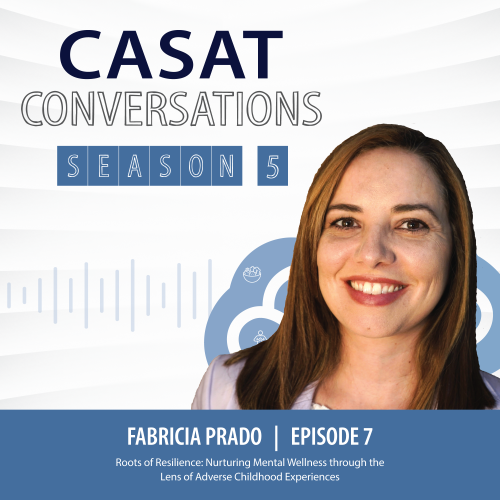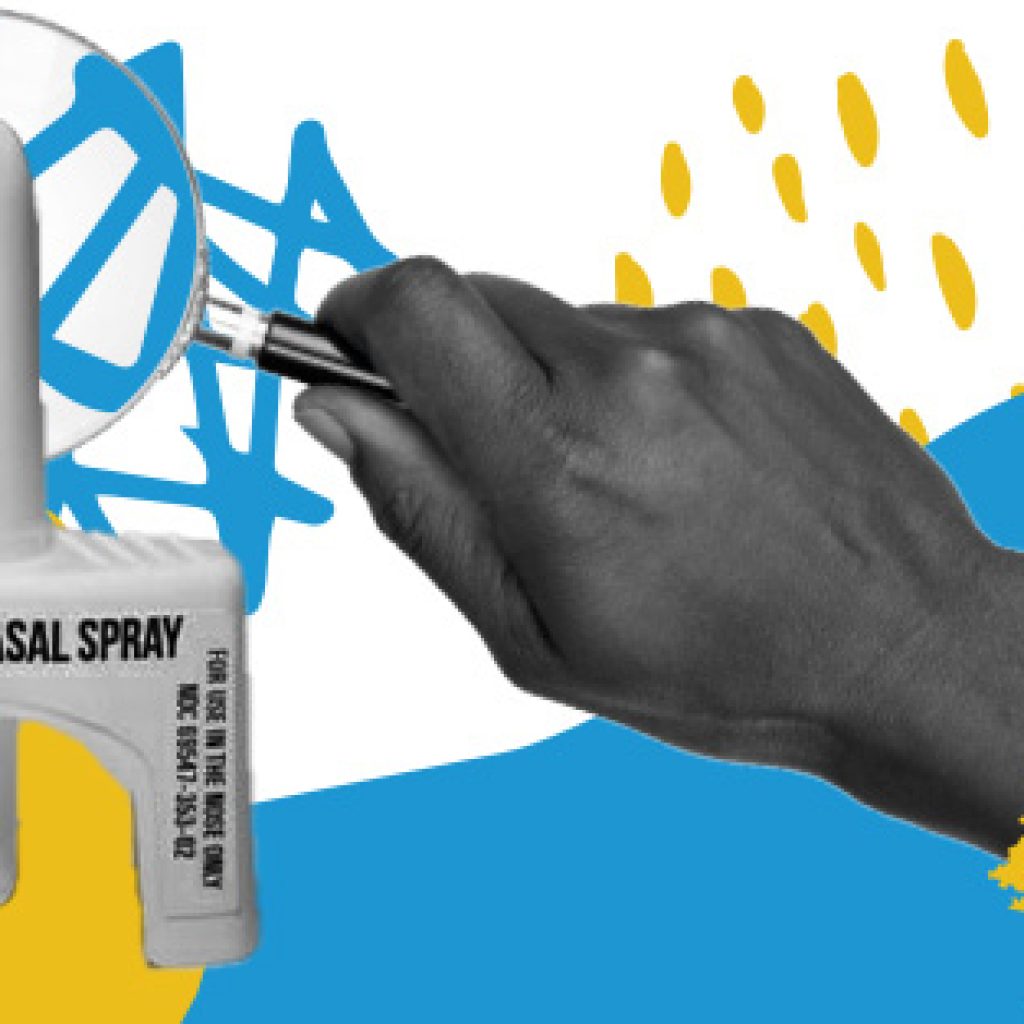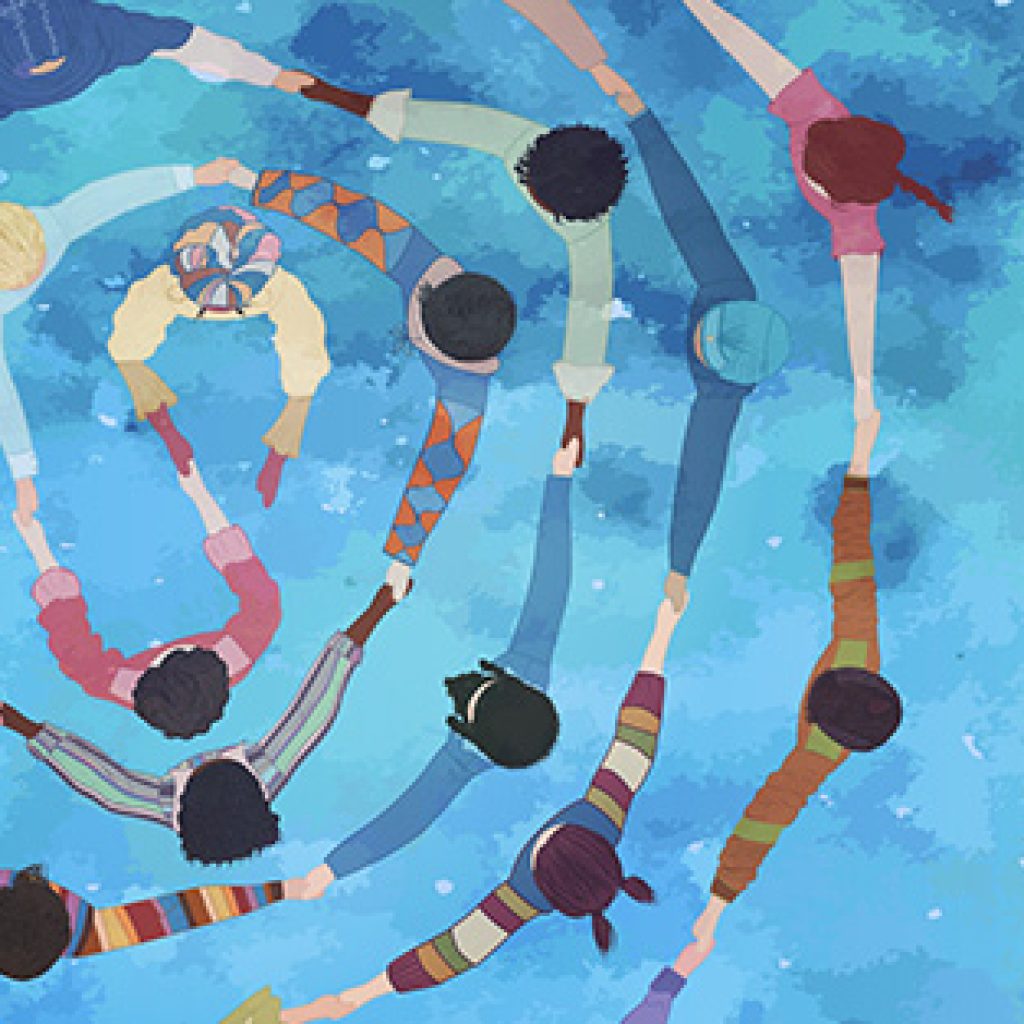The Ripple Effect: Applying the Social Ecological Model to Adverse Childhood Experiences
Healthcare providers are aware of the significant impact that Adverse Childhood Experiences (ACEs) can have on the physical and mental well-being of their clients or patients. ACEs are defined as traumatic events that occur between the ages of 0 and 17. They encompass three main categories: abuse, neglect, and household dysfunction. These categories include instances of physical, emotional, or sexual abuse, neglect, substance abuse, mental illness, domestic violence, or the incarceration of a family member.
The Social Ecological Model (SEM), a theoretical framework from Urie Bronfenbrenner, is widely utilized in public health, psychology, sociology, and other disciplines. This model provides a comprehensive understanding and analysis of the multiple levels of influence that shape individual behavior and health outcomes. It acknowledges that individuals exist within a complex system of interconnected environments, and these environments impact human development and behavior across various levels.
Outlined below is how ACEs impact each of the systems within the Social Ecological Model.
This chart outlines the ripple effect of ACEs on each system within the SEM model.

Individual
Adverse Childhood Experiences can have a profound and lasting impact on the individual. Below, you’ll see a number of these potential changes described.
Epigenetic Changes:
There is emerging evidence that ACEs may lead to epigenetic changes, which can affect how genes are turned on or off. These changes may contribute to the long-term impact of ACEs on physical health.
Dysregulated nervous system:
ACEs can dysregulate the nervous system, particularly the stress response system, leading to heightened reactivity (hyperarousal) or under-responsiveness to stimuli (hypoarousal) and increased susceptibility to chronic stress, which, in turn, may contribute to long-term physical and mental health challenges.
Health-Risk Behaviors:
People who have experienced ACEs may be more likely to engage in health-risk behaviors such as smoking, excessive alcohol consumption, and substance abuse. These behaviors can contribute to a range of health problems.
Brain Development & Immune System Response:
ACEs can affect the developing brain and lead to changes in the body’s stress response systems, including releasing stress hormones like cortisol. These changes can have long-term effects on the immune system, making individuals more susceptible to illnesses.
Mental Health Issues:
ACEs are strongly linked to mental health issues such as depression, anxiety, and post-traumatic stress disorder (PTSD). Mental health problems can, in turn, affect physical health by influencing behaviors like substance abuse, overeating, or engaging in other unhealthy coping mechanisms.
Chronic Health Conditions:
Individuals with a history of ACEs are at a higher risk of developing chronic health conditions such as heart disease, diabetes, asthma, and obesity. The stress caused by ACEs can lead to changes in the body’s stress response systems, which, if persistent, can contribute to the development of chronic health problems.
Reduced Lifespan:
Research has shown a strong correlation between the number of ACEs a person experiences and their overall health outcomes. Individuals with a higher ACEs score are more likely to experience poor health and a reduced lifespan.
It’s important to note that the impact of ACEs on an individual is complex and can be influenced by various factors, including the presence of supportive relationships, access to resources, and individual resilience. Early intervention and support can play a crucial role in mitigating the adverse effects of ACEs on both physical and mental health.

Interpersonal
The impact of Adverse Childhood Experiences on interpersonal relationships can be profound. Here are several ways in which ACEs can affect interpersonal relationships:
Strained Family Systems:
ACEs can strain relationships within family systems. Parents, siblings, and grandparents who experienced ACEs may struggle to establish healthy interpersonal connections within the family.
Intergenerational Cycles of Trauma:
Individuals who experienced abuse or neglect in their childhood may be at an increased risk of perpetuating these patterns within their own families, creating intergenerational cycles of trauma.
Communication Breakdown:
ACEs can contribute to breakdowns in communication within families. Open and effective communication may be compromised, leading to misunderstandings, conflicts, and a lack of emotional support.
Strained Friendships:
CEs can have a detrimental impact on friendships, as individuals grappling with the effects of such experiences may face challenges in forming and maintaining connections, leading to potential strain and misunderstandings within their social relationships.
Attachment Issues:
ACEs can affect the ability of family members to form secure attachments and bonds. Children who have experienced trauma may struggle with attachment to their parents or caregivers, impacting their emotional development.
While ACEs can have negative consequences for families, the presence of supportive factors, such as access to resources, mental health services, and community support, can mitigate these impacts. Interventions that focus on strengthening family resilience and providing support can help break the cycle of adversity and promote healthier family dynamics.

Community
Adverse Childhood Experiences can affect the broader community. The impact of ACEs on a community can manifest in various ways:
Educational Consequences:
ACEs may hinder academic performance, resulting in lower educational attainment and adversely affecting community-wide educational achievement and workforce readiness. Additionally, they can contribute to behavioral issues in school, potentially causing disciplinary problems and disruptions in the learning environment.
Increased Criminal Activity:
Individuals who have experienced ACEs may be at a higher risk of engaging in criminal behavior. This can lead to increased involvement with the criminal justice system, placing a strain on law enforcement, judicial resources, and corrections facilities.
Higher Rates of Unemployment:
Adults who experienced ACEs may face challenges in securing and maintaining employment due to the impact of trauma on their mental health and interpersonal skills. This can contribute to higher unemployment rates and dependence on social services in the community.
Increased Need for Healthcare & Behavioral Health Services:
The prevalence of ACEs can strain community health services, as individuals affected by ACEs may require an increased need for services. This heightened demand places pressure on healthcare resources, emphasizing the importance of addressing ACEs as a public health priority.
The impact of ACEs on a community is multifaceted, affecting physical and mental health, education, social dynamics, public safety, and economic stability. Addressing ACEs requires a comprehensive and collaborative approach involving healthcare, education, social services, public safety, and community support systems.

Society
The impact of Adverse Childhood Experiences can have significant consequences for society as a whole. Here are some ways in which ACEs can affect society:
Increased Healthcare Costs:
The pervasive impact of ACEs often results in increased healthcare costs for society, stemming from the higher prevalence of physical and mental health issues associated with ACEs. Addressing and mitigating the effects of ACEs can contribute to long-term cost savings by promoting preventive measures and fostering a healthier population.
Elevated Crime Rates and Burden on the Criminal Justice System:
ACEs are linked to an increased risk of engaging in delinquent behaviors and criminal activities. A higher prevalence of ACEs in a population can contribute to elevated crime rates and place a burden on the criminal justice system.
Strain on Public Resources:
ACEs place a burden on various public resources, such as mental health services, child welfare programs, and special education initiatives. The associated social and health challenges often require increased intervention, stretching the capacities of these resources. Mitigating the impact of ACEs is crucial for optimizing public resources, ensuring efficient allocation, and fostering a healthier, more resilient society.
Distrust in Others:
ACEs can erode the ability to trust others, as individuals who have faced early adversity may struggle with forming secure connections. This pervasive lack of trust can hinder community cohesion, impede collaboration, and contribute to a broader societal atmosphere of suspicion and disconnection.
Addressing ACEs at the societal level requires a comprehensive approach, including public health initiatives, educational programs, community support services, and local and state policy changes. Prevention and early intervention strategies can play a crucial role in breaking the cycle of adversity and promoting the well-being of individuals and communities.

Policy
As the understanding of the long-term consequences of ACEs has grown, policymakers increasingly recognize the importance of addressing these issues to promote the well-being of individuals and communities. Here are some ways in which ACEs can impact public policy:
Healthcare Policy:
Adverse Childhood Experiences profoundly influence healthcare policy, prompting recommendations for a more integrated and trauma-informed approach. Policymakers may advocate including ACEs screening in routine healthcare assessments, fostering early identification and intervention. Additionally, there is a growing emphasis on collaborative efforts between mental health and primary care services to address the comprehensive healthcare needs of those affected by ACEs.
Education Policy:
The impact of ACEs on education policy underscores the need for trauma-informed approaches in schools. Recommendations include the implementation of supportive environments, teacher training on recognizing and addressing ACEs, and increased access to mental health resources within educational settings. By integrating trauma-sensitive practices, education policies can better cater to the unique needs of students with a history of ACEs, promoting a more inclusive and conducive learning environment.
Social Services and Child Welfare:
Adverse Childhood Experiences significantly shape social services and child welfare policies, necessitating a focus on prevention and intervention. Recommendations may involve enhancing support systems for at-risk families, incorporating trauma-informed training for social workers, and promoting community-based programs that address the root causes of ACEs. By prioritizing early intervention and holistic family support, social services and child welfare policies can work to break the cycle of adversity and foster healthier family dynamics.
Criminal Justice Policy:
The impact of ACEs on criminal justice policy highlights the correlation between early trauma and later involvement in the criminal justice system. Recommendations may include the integration of trauma-informed approaches within correctional facilities, diversion programs that address the underlying causes of ACEs, and training for law enforcement personnel to recognize and respond to individuals with a history of trauma. By acknowledging and addressing the impact of ACEs, criminal justice policies can strive for more rehabilitative and preventative measures, contributing to reduced recidivism and community well-being.
Workforce and Economic Policies:
The impact of ACEs on workforce and economic policy underscores the long-term repercussions on productivity and employability. Recommendations may include workplace initiatives that provide trauma-informed support, access to mental health resources, and policies that accommodate individuals with a history of ACEs. By recognizing and addressing the impact of early adversity in the workforce, economic policies can contribute to a more resilient and productive society.
Public Awareness and Education:
Adverse Childhood Experiences influence public awareness and education policy by highlighting the importance of widespread understanding and prevention. Recommendations may involve incorporating ACEs education into school curricula, launching public awareness campaigns to reduce stigma, and fostering community dialogues on the long-term effects of early adversity. By prioritizing public awareness and education initiatives, policymakers can empower communities to recognize, address, and prevent ACEs, fostering a more informed and supportive societal environment.
Addressing ACEs at the policy level requires a comprehensive, cross-sectoral approach that prioritizes prevention, early intervention, and support for affected individuals and families. Policymakers are crucial in shaping the frameworks and resources needed to create a more resilient and supportive society.
As you can see, ACEs are not just an individual or family problem. They have an impact on the community and society at large. We need to address factors from each system to address the complexity of ACEs. It is with great hope that we can work together to minimize traumatic experiences for our youth, which in turn can have a significant ripple effect on society.
Ready to Learn More:
 Listen to Season 5 of CASAT Conversations. In episode 7, Fabricia Prado discusses the profound impact of ACEs and their role as the root cause of both physical and mental illness. We discuss the importance of developing a mindful relationship with our bodies and the need for understanding how healing from trauma requires a holistic approach that involves mind, body, and spirit. Additionally, in this discussion, you’ll gain insights into community-based initiatives, therapeutic interventions, and societal shifts that collectively contribute to a more supportive and nurturing environment for those affected by ACEs. Join us as we explore the intricate connections between early life adversity and its lasting effects on our well-being.
Listen to Season 5 of CASAT Conversations. In episode 7, Fabricia Prado discusses the profound impact of ACEs and their role as the root cause of both physical and mental illness. We discuss the importance of developing a mindful relationship with our bodies and the need for understanding how healing from trauma requires a holistic approach that involves mind, body, and spirit. Additionally, in this discussion, you’ll gain insights into community-based initiatives, therapeutic interventions, and societal shifts that collectively contribute to a more supportive and nurturing environment for those affected by ACEs. Join us as we explore the intricate connections between early life adversity and its lasting effects on our well-being.
References
Aytur, S. A., Carlino, S., Bernard, F., West, K., Dobrzycki, V., & Malik, R. (2022). Social-ecological theory, substance misuse, adverse childhood experiences, and adolescent suicidal ideation: Applications for community-academic partnerships. Journal of community psychology, 50(1), 265–284. https://doi.org/10.1002/jcop.22560
Barnett, M. L., Sheldrick, R. C., Liu, S. R., Kia-Keating, M., & Negriff, S. (2021). Implications of adverse childhood experiences screening on behavioral health services: A scoping review and systems modeling analysis. The American psychologist, 76(2), 364–378. https://doi.org/10.1037/amp0000756
Greydanus, D., & Calles, J. (2021). Neurobiology of resilience: Exciting research for practitioners of ephebiatrics. International Journal of Child and Adolescent Health, 14(3), 219-222.
Maunder, R. G., Hunter, J. J., Tannenbaum, D. W., Le, T. L., & Lay, C. (2020). Physicians’ knowledge and practices regarding screening adult patients for adverse childhood experiences: a survey. BMC health services research, 20(1), 314. https://doi.org/10.1186/s12913-020-05124-6
Pereira, V., & Malik, A. (2018). Identities in transition: The case of emerging market multinational corporations and its response to glocalisation. Social Identities. https://doi.org/10.1080/13504630.2017.1386380
Scarneo, S. E., Kerr, Z. Y., Kroshus, E., Register-Mihalik, J. K., Hosokawa, Y., Stearns, R. L., DiStefano, L. J., & Casa, D. J. (2019). The Socioecological Framework: A Multifaceted Approach to Preventing Sport-Related Deaths in High School Sports. Journal of athletic training, 54(4), 356–360. https://doi.org/10.4085/1062-6050-173-18
Blog Post Tags:
Related Blog Posts
Related Learning Labs
Related Resources
.
- Buscar Tratamiento de Calidad para Trastornos de uso de Sustancia (Finding Quality Treatment for Substance Use Disorders Spanish Version)
- Finding Quality Treatment for Substance Use Disorders
- Focus On Prevention: Strategies and Programs to Prevent Substance Use
- Monthly Variation in Substance Use Initiation Among Full-Time College Students
- The National Survey on Drug Use and Health (NSDUH) Report: Monthly Variation in Substance Use Initiation Among Adolescents








